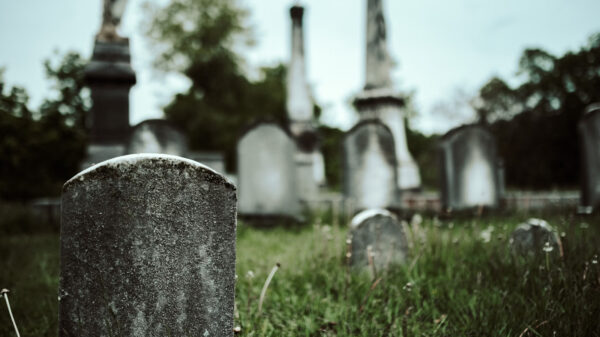
Investigative Approach #1:
Working FORWARD from the Ministry of Jesus
The gospels tell us that Jesus began his public ministry at “about 30 years” of age (Luke 3:23), during the “the fifteenth year” of Tiberius Caesar (Luke 3:1-2). Tiberius began his reign at the death of Augustus Caesar in AD 14, which means Jesus would have begun his public ministry in approximately AD 29-30. This time range would also be consistent with other known historical events. For example, Jesus visited the Jewish temple in Jerusalem early in his public ministry (John 2:13) and was told the temple had “been under construction for forty-six years” (John 2:20). Historians argue about when the construction began (based on differing records and interpretations), but their best estimate for Jesus’ visit (as recorded in the Gospel of John) is AD 29. The gospels also report the death of John the Baptist following the marriage of Herod Antipas and Herodias (Matthew 14:4), and while historians also debate the exact date of this marriage (based on ancient non-Christian sources), many place it (and the execution of John the Baptist) between AD 31-32. This historical evidence is consistent with the Apostle John’s description of three different Passover celebrations (suggesting that Jesus’ public ministry lasted three years). This would place the Resurrection between AD 31-33, likely in the latter part of this range.
Investigative Approach #2:
Working BACKWARD from the Trial of Paul
A second approach to dating the Resurrection of Jesus involves working backwards from the trial of the Apostle Paul, who converted to Christianity after seeing the risen Jesus on the road to Damascus. The Book of Acts describes the trial of Paul in front of Junius Gallio in the region of Achaea, Greece (Acts 18:12-17). This occurred in approximately AD 51–52, based on a 1905 archaeological discovery in the city of Delphi. A stone inscription found there described a letter from Emperor Claudius (AD 41-54) that mentions Gallio and provides historians with evidence that Gallio was proconsul in the area between AD 51-53. Given the historical sequence of Paul’s activity leading up to this trial, it appears that Paul had been a Christian for about seventeen years by the time he appeared before Gallio. This means he would have been converted in approximately AD 34-35. The Resurrection of Jesus would have occurred sometime shortly before that, perhaps from AD 32-33.
Investigative Approach #3:
Working ALONGSIDE Astronomers Through the Ages
Most Biblical historians agree that the crucifixion of Jesus occurred on a Friday, and all the Gospel accounts describe Jesus dying a few hours before the Jewish Sabbath (i.e. before nightfall on Friday). The Gospels also agree that Jesus died at the time of the Jewish Passover. Based on Old Testament requirements, Passover lambs were to be slaughtered between 3 and 5pm on the 14th day of the Jewish month Nisan, and the meal was to begin on a full moon that evening, (the start of 15 Nisan). So, was there a day in the reign of Pontius Pilate (from AD 26-36) in which the 14th and 15th Nisan fell on a Friday? Isaac Newton thought so. In 1733, based on his work as an astronomer and his calculations for full moon appearances, he proposed two dates: Friday, April 3rd, AD 33, and Friday, April 23rd, AD 34. Through the ages, other astronomers have done similar calculations. Physicist Colin Humphreys, for example, proposes Friday, April 7th, AD 30, in addition to Newton’s date of Friday, April 3rd, AD 33. In any case, the range of possible dates from astronomers varies from AD 30-33.
Two interesting observations emerge from these three investigative approaches. First, the time range offered for the Resurrection is remarkably small, given how long ago it occurred. Even though the Resurrection of Jesus took place nearly two thousand years ago, we can narrow the window of occurrence to within just three years, from AD 30-33. More strikingly, AD 33 exists as a reasonable common inference from all three approaches and is even consistent with astronomical evidence related to the Passover.
But more importantly, the effort to date the Resurrection is reasonable in and of itself. Unlike other religious systems that make untestable spiritual claims untethered to real, historical events, Christianity is grounded in a claim about history that can be tested. The crucifixion and Resurrection of Jesus are nestled amongst real people and real events that occurred in the 1st Century. Herod, Tiberius, Pontius Pilate and Junius Gallo were real, historical people, just like Jesus. Jerusalem, Damascus and Achaea are real cities. The claims about Jesus were made very early in history in front of people who would have known if they were lies. Credible, credentialed historians agree: Jesus existed as a real historical person, and efforts to estimate date ranges for His birth, ministry, crucifixion and Resurrection are reasonable. It’s unlikely anyone is trying to date Goldilocks’ interaction with the three bears. But, the fact that we can date the Resurrection of Jesus places the event in a very different category. The Spring, Easter season is the perfect time to celebrate the Resurrection of Jesus and the rational nature of the Christian worldview.
Unlike other religious systems that make untestable spiritual claims untethered to real, historical events, Christianity is grounded in a claim about history that can be tested. Share on X(This article first appeared on the BreakPoint Website)

J. Warner Wallace is a Dateline featured Cold-Case Detective, Senior Fellow at the Colson Center for Christian Worldview, Adj. Professor of Christian Apologetics at Talbot School of Theology, Biola University, author of Cold-Case Christianity, God’s Crime Scene, and Forensic Faith, and creator of the Case Makers Academy for kids.
Subscribe to J. Warner’s Daily Email
J. Warner Wallace is a Dateline featured cold-case homicide detective, popular national speaker and best-selling author. He continues to consult on cold-case investigations while serving as a Senior Fellow at the Colson Center for Christian Worldview. He is also an Adj. Professor of Christian Apologetics at Talbot School of Theology, Biola University, and a faculty member at Summit Ministries. He holds a BA in Design (from CSULB), an MA in Architecture (from UCLA), and an MA in Theological Studies (from Gateway Seminary).








































